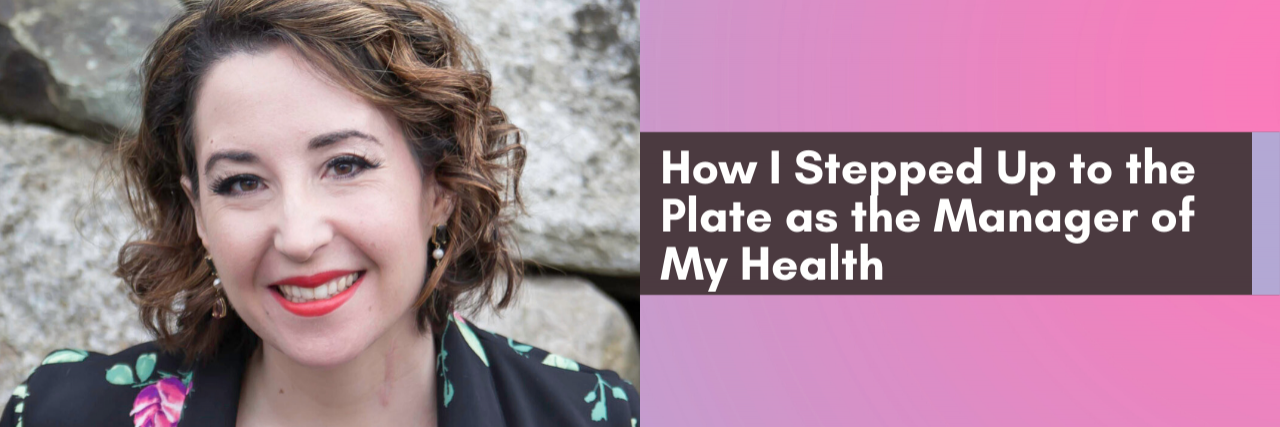When I was first diagnosed with multiple sclerosis (MS) six years ago, I didn’t know my own strength. At the time, I was in denial about my new normal and unsure of what to do next. Today, I feel empowered to be the manager of my own health with a team of supportive doctors, but back when I first started having symptoms, I won’t sugarcoat it — I was scared. I was 31 years old, in the best shape of my life, reveling in the “hustle culture,” and moving at the speed of light. Until suddenly everything came to a halt.
After experiencing tingling, numbness, vertigo, and loss of sight, I went to the emergency room. The doctor who saw me was unconcerned by my symptoms and sent me home, telling me not to worry. He explained that I should see a neurologist in a few weeks if the symptoms didn’t go away. But I didn’t want to let my health be subject to a “few weeks,” so I made a neurologist appointment right away. This ultimately led to an MS diagnosis. Sadly, this experience of being dismissed, or having symptoms confused for another illness, isn’t uncommon in MS, with too many patients forced to navigate this long road to diagnosis, making it even more important to be your own best advocate.
During that first appointment, my neurologist spent three hours explaining MS, common symptoms, how it may affect daily life, and options for disease-modifying therapies (DMTs). With his support, I felt informed and had the confidence to step up as the manager of my health. When I describe my journey with MS, I compare it to a baseball team. As the manager, I work closely with my head coach, or neurologist, to draft the right team of pitchers, infielders, outfielders, and pinch-hitters, all of whom work together for a common goal — to win against our opponent, MS.
Six years later, my neurologist continues to be my sounding board and the head coach of my healthcare team. I recognize that finding the right team, and, ultimately, the right treatment, can be easier said than done, so I’m sharing a few tips for my fellow MS warriors, especially for those who are newer to the game.
- Seek out an MS specialist. After my initial diagnosis, I saw multiple neurologists, looking for the best care available. In the end, I chose the initial neurologist who diagnosed me because of his MS expertise and ability to offer specialized care. I know I can rely on him to keep me updated on the latest advancements in the field, help me make decisions about evolving our treatment strategy as the science progresses, and boost my confidence in the care I receive. Having an accessible and collaborative neurologist as a guide and resource has been pivotal in my MS experience.
- Tell your doctor about your lifestyle and preferences when discussing your treatment plan. It’s easy to get consumed by your MS diagnosis — there is a ton of information — but it has always been important to me to prioritize my lifestyle and health goals outside of MS. These are the things that have really impacted my day-to-day life with MS, like how I prefer to take my medication.
Personally, I’m terrified of needles, so that was a major consideration my doctor and I discussed when choosing a treatment. Don’t be afraid to advocate for yourself and your preferences to find a personalized plan that fits with your life.
- Lean on your neurologist as a coach to help build out your healthcare team. Once I found my neurologist, it was time to build out my bench of specialists to complete my healthcare team. I worked closely with my neurologist to figure out missing pieces in my holistic health plan. Based on my neurologist’s recommendations and my own research, I found a fantastic mental health counselor, nutritionist, acupuncturist, and physical therapist. You might also find support from communities or experts online, where other people living with MS can discuss their own experiences and offer tips. That’s the thing about MS, it’s truly unique for all of us, so it’s important to find what works best for you.
You can live your best life with MS, and it starts by advocating for your health. I know how intimidating it can be to speak up, especially if your doctor isn’t hearing you. I’ve gained confidence by staying informed through trusted sources like the National Multiple Sclerosis Society and Multiple Sclerosis Foundation (MS Focus). Additional resources, like MoretoMS.com, offer educational resources that provide tips for having open conversations with your doctor. At the end of the day, you know your body best. Blow your whistle, draft a new player — you are the manager of your MS.


